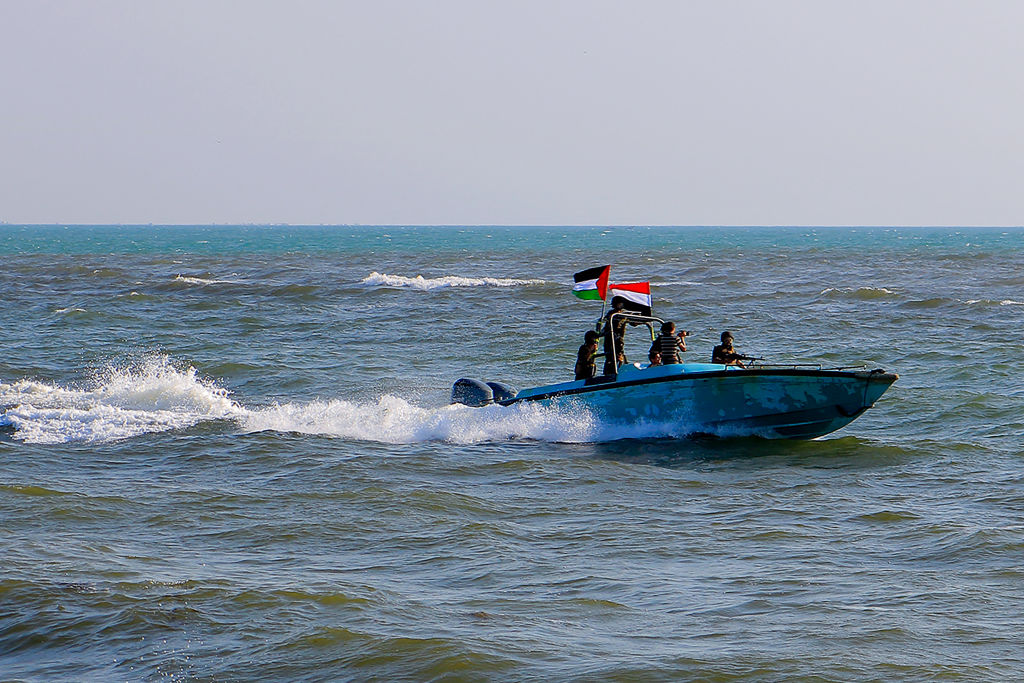For years, European leaders have recognised that ‘in a world of carnivores, vegetarians have a very tough time of it,’ as Germany’s former Foreign Minister Siegmar Gabriel put it in 2018. Six years later, as a handful of well-armed Houthi pirates all but shut down maritime trade on the Red Sea, Europe is finding itself to be a vulnerable vegetarian once again.
To prevent the Houthis blocking trade through the Suez canal, ‘Operation Prosperity Guardian’ was launched in December. Although it is ostensibly a multinational coalition, in reality it is an American project, led by a US carrier strike group. The UK has sent one ship, as have Denmark and Greece. Norway, in turn, is sending only ten staff officers, while Netherlands is only sending two (yes, you read that correctly). Independently, Italy and France (which has a military base in Abu Dhabi) are deploying a frigate each to help police maritime trade routes in the region.
Is it going to be enough? Probably not. By all accounts, the Houthis are much better organised and equipped than the Somali pirates from a few years ago, and they are backed by a highly capable – and malevolent – regional power: Iran. Whilst the United States is seeking to avoid a broader war in the Middle East, a handful of European ships are hardly enough to dissuade the Houthi militias from holding as much as 30 per cent of global container trade hostage.
For years, the EU has congratulated itself on the ‘Brussels effect’. The idea is that while the bloc might lack hard power it has exercised a massive global influence by setting regulatory standards that the rest of the world has to adopt if it wants to retain access to the vast European market.
The ‘Brussels effect’ is real – though it is arguably weaker in areas where Europe lacks a real competitive edge, such as AI. But more importantly, soft power is no substitute for actual military capability and willingness to use it, especially when confronted with actors for whom material considerations matter less than for ‘normal’ governments.
The same is true of the EU’s response to Russia’s aggression against Ukraine, in which sanctions – now in their twelfth iteration— have been the bloc’s instrument of choice. Implicit in this reliance on a tightening economic sanctions regime is the idea that a sufficient amount of economic pain inflicted by the EU will eventually make the Kremlin recognise that aggression against its neighbours does not pay.
The twelfth package, for instance, imposes bans on Russian diamonds, processed aluminium, pig iron, and copper wires. Do not hold your breath waiting for those few billion dollars in lost export revenue to change Vladimir Putin’s mind – or derail Russia’s war machine.
Both in the Red Sea and in Ukraine, the EU is constrained by its own lack of capacity. For the most part, European navies are hollow shells of their former selves. In 2018, it was reported that none of Germany’s submarines worked and that the Deutsche Marine’s helicopters were older than their pilots. Similarly, fighter jets and long-range precision artillery aside, most European governments have already transferred much of what they could to Kyiv. Producing new systems and munitions is both expensive and takes time.
True, some European countries have expanded their military budgets and are rebuilding their militaries. Very few of them, however, are acting with the urgency that the situation requires. Even France, Western Europe’s pre-eminent military power, is struggling to meet Nato’s 2 per cent target for defence spending – a target that was devised for peacetime, not the period of turbulence that Europe currently faces.
The complacency is puzzling, particularly after the experience with the Trump administration and the real prospect of Trump’s return to the Oval Office. For all the talk about ‘taking our fate into our own hands’ (as Angela Merkel put it in 2017) to this day most European leaders are operating under the assumption that when things go wrong, as they have in Ukraine and in the Red Sea, it is Uncle Sam’s job to fix it.
Yet, Trump aside, Washington cannot care about Ukraine’s European future, or about container trade moving through the Suez Canal (most of which is between Asia and Europe) more than Europeans themselves. If Europeans do not wake up to this reality soon and start acting accordingly, the continent will never be a relevant global player.






Comments